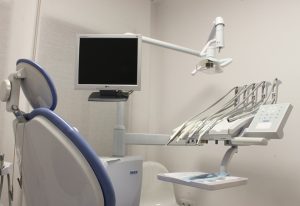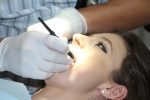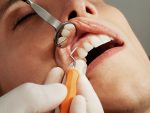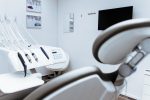
Taking into consideration the definition of dental hygienists offered by The American Dental Hygienists Association (ADHA), these people are oral health professionals whose main aim is preventing and treating oral diseases.
Whether hygienists must be state-licensed or not depends on the state they decide to work in.
Licencing requires graduating from a college or university dental hygienist program as well as passing a written national board examination and state clinical examination.
When compared to dental assistants, who may only work under the direct supervision of a licensed dentist, dental hygienists are allowed to perform their duties independently, with only general supervision from a licensed dentist.
As you could notice, dental hygienists are significant people in dentists’ teams.
With their help, the dentist is not obliged to do those less demanding duties but can focus on performing more advanced procedures.
Generally speaking, dental hygienists perform preventive dental procedures in an office, including teeth cleaning and fluoride application.
Page Navigation
Responsibilities and Job Duties of Dental Hygienists
Even though state-licensed dental health professionals have various responsibilities and duties, and are allowed to do different things depending on the state in which they practice, there are certain basic services of dental hygienists, according to the American Dental Association (ADA), and they are the following:
- Applying preventative materials to the teeth
- Educating patients on oral hygiene strategies and good nutrition
- Patient screenings – oral health assessments, oral health history review, oral cancer screening, head and neck inspections, and taking of vital signs
- Keeping documentation and office management
- Removing calculus and plaque from teeth
- Taking and developing dental radiographs
When it comes to state requirements, there are other additional duties that dental hygienists are allowed to do besides the above-mentioned job functions.
Furthermore, licensed dental professionals can sometimes do some additional duties but only under a dentist’s direct supervision, such as:
- Local anesthesia
- Administration of nitrous oxide
- Placing and removing periodontal dressings
- Placing and removing sutures
- Soft tissue curettage
For example, in the state of Arizona, dental hygienists are allowed to do prophylaxis, x-rays, topical anesthesia, fluoride, and pit and fissure sealants if they have the authorization of a licensed dentist.
Furthermore, the dentist does not have to be present when the services are performed.
However, California dental hygienists are allowed to perform all of the above job duties under the general supervision of a licensed dentist.
Plus, the administration of local anesthesia, the administration of nitrous oxide, and soft tissue curettage must be performed under direct supervision.
Georgia belongs to those states that have much stricter laws.
According to its laws, dental hygienists are not allowed to perform the following:
- X-rays
- Local anesthesia
- Administration of nitrous oxide
- Placing sutures
- Treatment planning
But, they are permitted to do the following job duties under direct supervision:
- Prophylaxis
- Topical anesthesia
- Fluoride treatment
- Pit and fissures sealants
- Root planning
- Soft tissue curettage
- Removing sutures
- Placing and removing periodontal dressings
We have to mention that dental hygienists in Kansas have a huge list of job duties, and their functions are permitted to be done under the general supervision of a licensed dentist.
There is only one function that can be performed under the direct supervision of a licensed dentist in Kansas, and that is the administration of local anesthesia.
In Kansas, dental hygienists are not allowed to do the placement of sutures.
Education, Training, and Licensing Requirements for Dental Hygienists
As you are reading this, you are probably interested in getting dental hygienist education, which can be received through colleges and universities, dental schools, junior colleges, and technical schools, depending on your interests and aspirations.
The minimum requirement that each student has to reach so that he/she can get state licensure of dental hygienists is an associate degree.
It usually takes about two years to complete and it typically ends with a clinical externship, giving students a chance to apply their skills and knowledge in a dental care setting.
An associate’s degree in dental hygiene is the lowest level, but there are those who wish to advance in their career, so they can enroll in dental hygienist programs offered at colleges or universities that result in a bachelor’s or master’s degree in dental hygiene.
Once you complete an associate’s degree in dental hygiene, you can complete a bachelor’s degree program in another two years, and a master’s degree in another four years.
The American Dental Association’s (ADA) Commission on Dental Accreditation (CODA) is the only accrediting body for dental hygiene programs in the United States and students can choose from 330 CODA-accredited dental hygiene programs.
Examination and Licensure for Dental Hygienists
Achieving an associate’s degree in dental hygiene from an accredited institution is the first step towards your new career.
If you wish to become dental hygienists who will be attractive to employers and who will know what to do, you must successfully pass a state-authorized licensure examination, as well as the National Board Dental Hygiene Examination.
The national examination is designed so as to prove a candidate’s knowledge of the practice of dental assisting.
On the other hand, state or regional examinations are there to assess a hygienist’s clinical skills.
There are some additional requirements for state licensure as a dental hygienist such as the successful completion of a state jurisprudence examination and CPR certification.
It is worth noting that a state license is required if you want to legally practice dental hygiene in the U.S.
Dental hygienists with state licensure are permitted to use the acronym RDH, meaning that they identify themselves as Registered Dental Hygienists.








